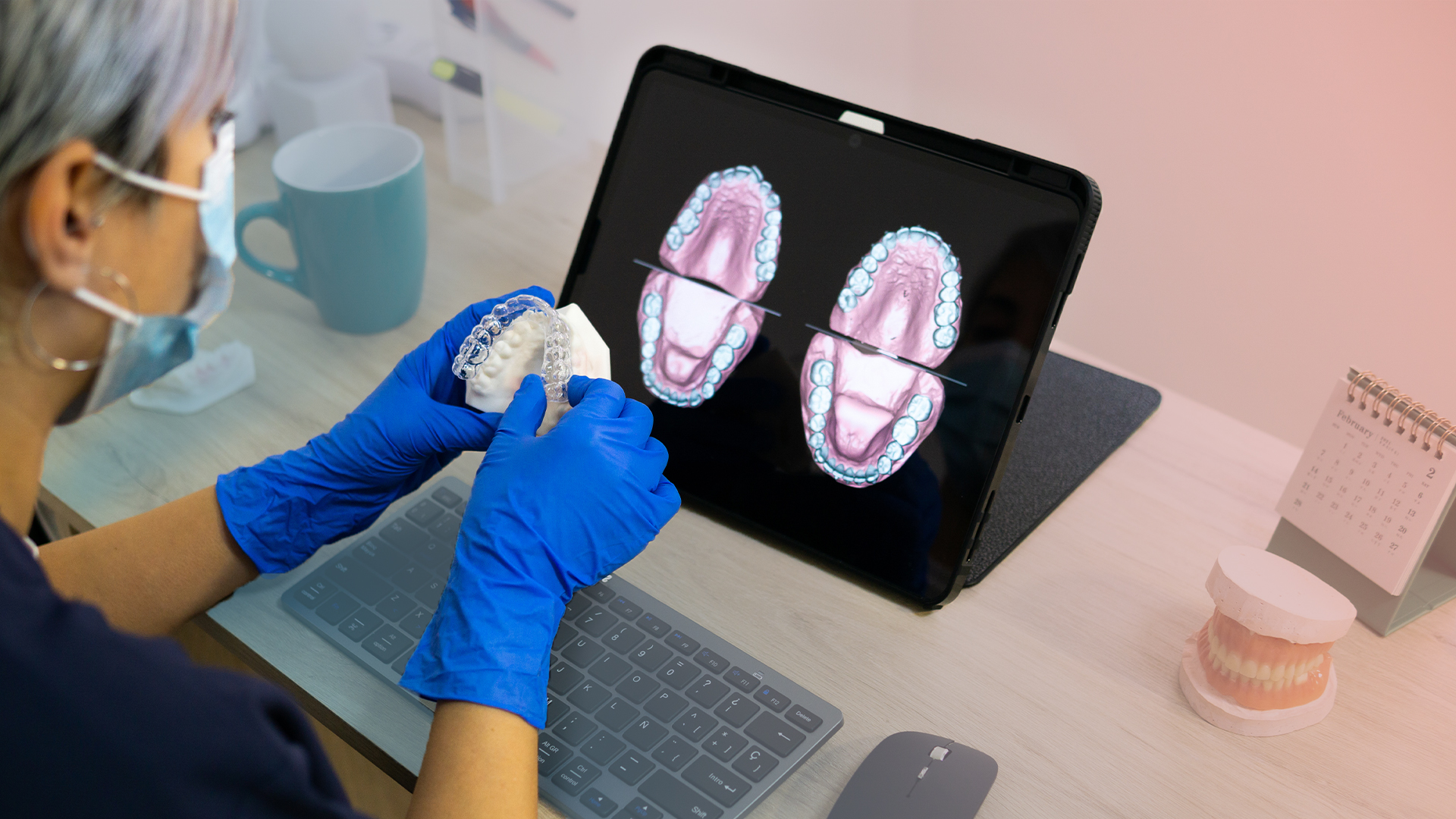Menu
Free Consultation

New technologies are entering our lives every day in the field of dental health. In recent years, artificial intelligence-supported dental treatments have made life easier for both doctors and patients by providing faster and more accurate diagnosis.
In this article, you can find detailed answers to questions such as what is artificial intelligence-supported dental treatments, in which areas are they used, and what are the advantages they offer.
Artificial intelligence (AI) is a technology that enables machines to gain human-like learning, analysis and decision-making abilities. It is used in the healthcare sector, especially in dentistry, to optimize diagnosis and treatment processes.
Artificial intelligence analyzes dental problems in a shorter time compared to classical methods. An image that a radiographer would examine for minutes can be analyzed in seconds by AI-supported software.
The risk of human error is reduced. In particular, details that may be overlooked, such as small cavities, minor cracks or initial cysts, are detected more reliably by AI-supported systems.
Artificial intelligence can analyze the patient's oral structure and recommend the most appropriate treatment methods for the patient. This brings more successful and satisfaction-oriented results.
Especially in serious cases such as oral cancer, early diagnosis is life-saving. AI technologies provide the chance for timely intervention by catching such diseases at an earlier stage.
With the analysis performed on digital X-rays, early-stage caries are quickly detected by AI-supported systems.
Periodontal problems such as gum recession and bone loss can be identified at an early stage thanks to artificial intelligence.
Jaw structure, tooth positions and malocclusions are accurately mapped with AI, thus preparing the ideal orthodontic treatment plan.
Abnormal tissue changes or lesions are analyzed by AI algorithms and risky situations are detected at an early stage.
Artificial intelligence systems that work on digital radiography, panoramic x-ray and 3D tomography images support physicians by performing detailed analysis.
Machine learning algorithms trained on hundreds of thousands of patient data analyze new incoming data and make fast and accurate predictions.
Chatbot systems provide accurate guidance by quickly answering patients' questions. It provides great convenience for remote patient monitoring, especially during the pandemic period.
Dentists of the future will have to have not only clinical skills but also the ability to use artificial intelligence systems correctly.
In dentistry faculties, artificial intelligence-supported analysis methods and digital diagnosis modules have already begun to be added to course curricula.
First of all, clinics need to invest in the right artificial intelligence solutions. Software compatible with digital radiography systems should be preferred.
In order for artificial intelligence to be used effectively, it is essential that physicians and clinic staff receive training on these systems.
Properly informing patients about artificial intelligence-supported diagnosis and treatment methods creates trust.
In traditional dental treatments, patients could experience long waiting times, complicated diagnostic processes and uncertainties. However, with AI-supported dental treatments, the patient experience is changing radically.
Fast and Accurate Diagnosis:
Our dear patient, Ms. Ayşe, applied to our clinic while experiencing mild gum sensitivity. Thanks to AI-supported scans, an inflammation that was not yet visible to the naked eye was detected at a very early stage and an easy treatment process was initiated.
Less Anxiety, More Confidence:
The fast and reliable diagnosis provided by AI increases patients' confidence in treatment.
Personalized Approaches:
AI-supported systems offer the most appropriate treatment plans specific to each patient.
Is artificial intelligence diagnosis completely independent of human control?
No. Artificial intelligence provides a preliminary analysis, the final diagnosis is always checked by the dentist.
Can artificial intelligence-assisted diagnosis be incorrect?
It is possible, although rare, but the error rate is much lower than classical methods.
Are artificial intelligence-assisted treatments more expensive?
Generally no. In the long run, it can provide cost advantages with less intervention in less time.
Is my patient information secure?
Yes. Full compliance with GDPR and similar data security regulations is ensured.
Does artificial intelligence shorten the treatment period?
Yes. Diagnosis and treatment planning are done much faster.
Artificial intelligence-supported dental treatments promise a faster, more accurate, and safer future for both patients and physicians.
It seems inevitable that artificial intelligence technology will become a standard practice in dentistry in the coming years.
